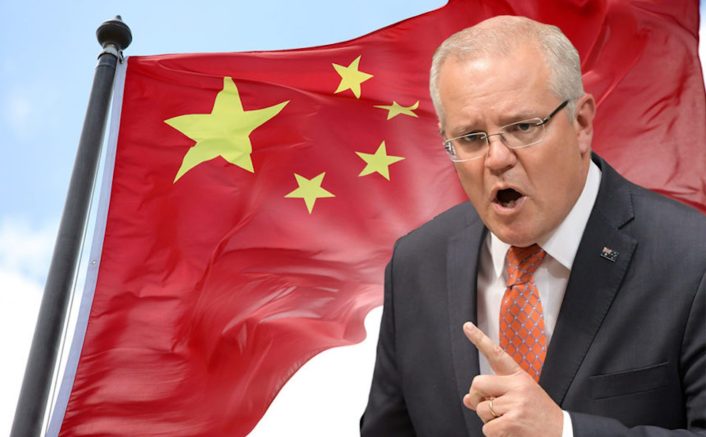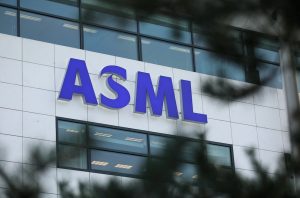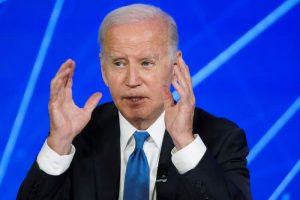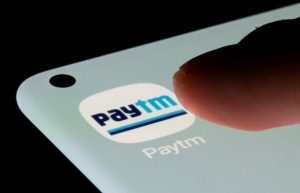SYDNEY – China has stepped up a diplomatic offensive over Australia’s demands for an inquiry into the origins of Covid-19, amid reports that Western spy agencies are investigating a Wuhan virus research facility.
Bilateral relations have sunk to their lowest point for years over efforts by Australia to mobilize international support for an independent probe into the source of the coronavirus and the handling of the initial outbreak by China and the World Health Organization (WHO).
Australian Prime Minister Scott Morrison said today (April 29) that such an investigation is “entirely reasonable and sensible” as Covid-19 infections passed the three million mark with 200,000 associated deaths worldwide. He said an independent probe was in the “global interest.”
On April 27, Beijing’s ambassador in Canberra, Cheng Jingye, hit back on Canberra’s earlier call for a probe with threats of economic retaliation in an interview in the Australian Financial Review, hinting that it would target key Australian sectors like trade and education.
“Maybe the ordinary people will say, ‘Why should we drink Australian wine? Eat Australian beef?” Cheng said. “The parents of the students would also think . whether this is the best place to send their kids.”
China was Australia’s most important trade partner in 2018-19, with the two sides’ trade worth US$235 billion. About 38% of foreign students in Australia came from China in that period and 16% of tourists, though both have dwindled sharply due to Covid-19 travel embargoes.
Australian Foreign Minister Marise Payne cautioned Beijing against using “economic coercion” to deter a coronavirus probe, and insisted such an inquiry would proceed. She wants an independent panel with authority to investigate inside of China.
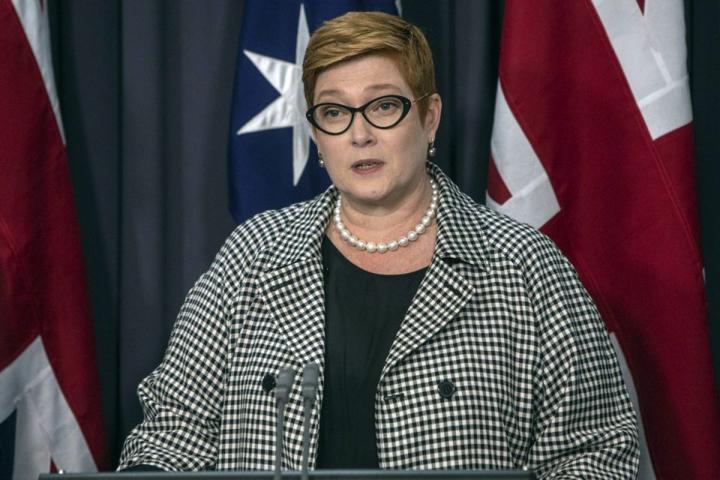
Australian Foreign Minister Marise Payne Payne said the fallout from the pandemic was set to change the relationship between her country and China. Photo: AFP
The prospect of China cooperating with such an investigation are minute.
“There is zero chance that what we say has any impact. We will only infuriate the Chinese government because they so strongly object to foreign interference,” Jane Goolley, an Asian affairs specialist at the Australian National University, told the Daily Mail website.
“At best, the government’s approach will make no difference and at worst the Chinese government will decide to contract the relationship with Australia.”
Hu Xijin, editor of the Chinese Communist Party-run Global Times, upped the ante by comparing Australia to “chewing gum” in a post shared on social media site Weibo.
“Australia is always there, making trouble. It is a bit like chewing gum stuck on the sole of China’s shoes. Sometimes you have to find a stone to rub it off,” Hu said. On April 28, the Global Times accused Morrison of “panda bashing” and “adventurism” that could damage relations “beyond repair.”
No other nation has, at least publicly, backed Australia’s call for an inquiry, though politicians in the US and Germany are pushing for financial compensation from China for Covid-19 related economic losses.
Washington cut off funding to the WHO after accusing the United Nations body of “severely mismanaging and covering up” the virus at the behest of China. Australia is also unhappy, but still supports the WHO.
The “Five Eyes” intelligence community comprised of the US, UK, Australia, Canada and New Zealand is conducting its own investigation into whether Covid-19 may have been accidentally released from a Wuhan laboratory involved in virus research, according to media reports.
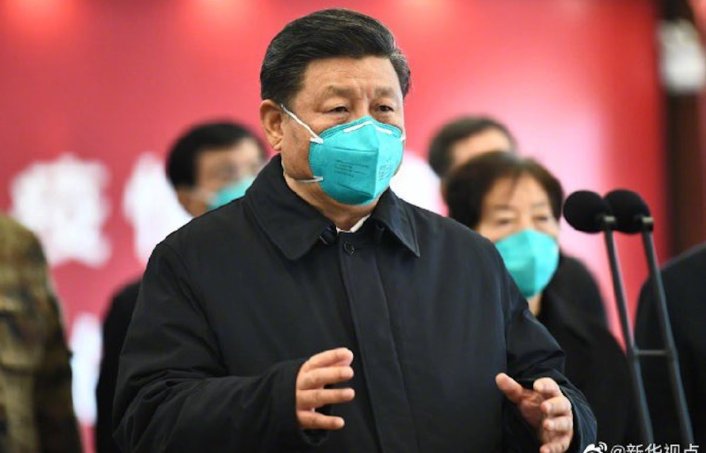
Chinese President Xi Jinping visits the Covid-19 epicenter Wuhan, Hubei province, on March 10. Photo: AFP
Wuhan Institute of Virology has dissected bats that carry RaTG13, the closest pathogen to SARS-CoV-2, which causes Covid-19. The reports suggest that Five Eyes inquiries have centered on Wuhan scientists Peng Zhou and Shi Zhengli.
Shi led a team from Wuhan and the US that took samples of droppings from horseshoe bats at a cave in Yunnan province in 2004 and was the first to find a definite connection between the animals and RaTG13. Her database found a 96% virus match between the droppings and Covid-19.
Three other species of bats were also studied by the laboratory in a five-year period, according to papers published in 2005 and 2017. Shi disputed the belief that a host is needed for the virus to leap from bats to humans.
Peng and Shi also separately took part in research in the past decade at the Australian Animal Health Laboratory near Melbourne, which looked at links between coronaviruses and bats caught at a colony in Queensland.
These bats were studied because they harbour hendra and nipah viruses, which have infected large fruit bats and can be transmitted to humans.
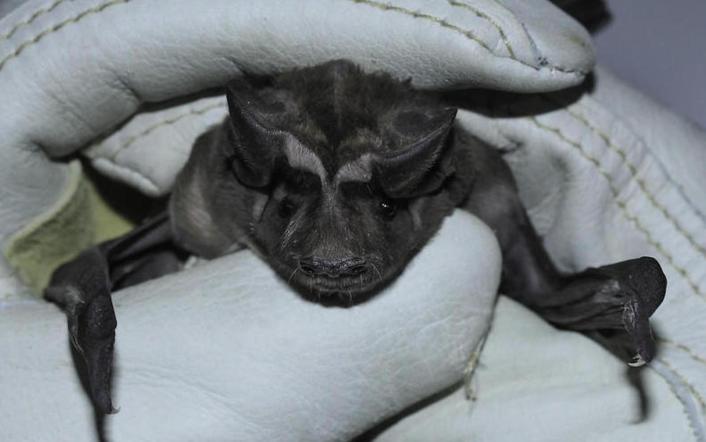
The US-funded research into bat coronaviruses in a lab in Wuhan, China, that is now under scrutiny for possibly being behind the Covid-19 pandemic. Photo: Facebook
Beijing initially said Covid-19, which was first detected in early January, originated in a wet market selling live animals near the Wuhan laboratory, but now maintains that there is no evidence that it came from China at all.
“China is the first country to report a Covid case, but it doesn’t mean the virus originated in China,” foreign ministry spokesman Geng Shuang said on Monday.
“Some people are trying to hype up the so-called investigation that is inconsistent with an international atmosphere of cooperation and their political manoeuvring will not succeed,” he said.
Researchers who have mapped Covid-19’s gene sequence confirm that it is of animal origin, but said the host might not have been a bat.
Pangolins, sold at some live animal markets in China, can also carry coronaviruses, but it’s still doubtful independent investigators will be allowed to probe and test such theories from inside China.
This story appeared first on Asia Times




